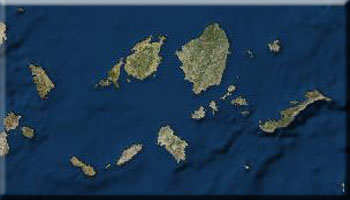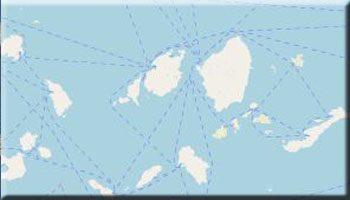In historic times, the island's first settlers were Phoenicians from Sidon, who were succeeded by a number of settlers. In antiquity, Antiparos was known as Oliaros and its history is inextricably linked to that of Paros. The earliest reference to Antiparos with its present name is in the 13th century, even though the name itself is ancient as in mythology Antiparos was one the 50 sons of the murdered Aegyptus; Antiparos and a brother were the only two boys who survived as the rest were murdered by Aegyptus's wife, Kritomythea, a daughter of Danaus.
In Byzantine times and through the early 13th century, as well as during the Greek independence revolt in 1821, the island suffered from raids by pirates from Algeria, Crete, Kefalonia, and elsewhere. In 1537, Antiparos and the rest of the Cyclades passed into Ottoman rule and the hands of the fierce pirate Barbarossa; during that period, the island was savagely pillaged. Antiparos was among the first islands in the Cyclades to join the Greek independence struggle. The island officially became a part of the Modern Greek State in 1832.
In the second world war, Antiparos was active in the resistance against the Germans, serving as a secret base for the Allied forces.

























